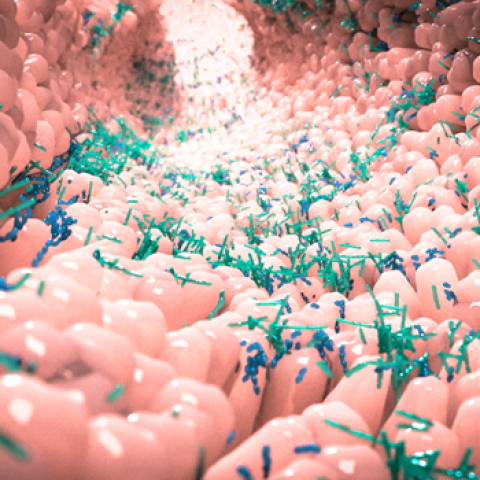Interdisciplinary Initiatives Program Round 9 - 2018
Justin Sonnenburg, Microbiology & Immunology
Amin Arbabian, Electrical Engineering
Inflammatory bowel diseases (IBDs) and nosocomial enteric infections have increased markedly in western populations in the last century. The reason for this increase is unclear. Epidemiological data points to population level changes in diet and gut microbiota, and building evidence suggests that a diet-damaged microbial community contributes to disease. Unfortunately, the molecular mechanism underlying this connection remain unknown. A leading hypothesis involves the oxidation/reduction state of the gut (the redox balance). In brief, recent evidence suggests that a more oxidized gut – containing elevated levels of one or more strong oxidants (e.g. O2, H2O2, NO) – favors the outgrowth of pathogenic aerotolerant bacteria and impairs immune regulation, leading to disease states. Despite the importance of measuring and characterizing gut oxidation state, researchers currently lack tools to directly test gut oxidation in model organisms (rats and mice), preventing experimental study of how diet- and antibiotic-induced changes in the microbiota lead to disease. Our proposal outlines the development of implantable in-vivo sensors for measurement of redox balance in mice and rats over long time frames (> month). We propose two major aims for our work: 1) Demonstrate long-term in-vivo ORP measurements, determine how ORP changes through dysbiosis and recovery, and identify molecular markers of dysbiosis, and 2) Develop a mouse-implantable, redox-couple specific sensor to test specific redox couples and the impact of different microbial consortia on redox balance. Identifying how redox balance influences or signals pathology in diverse conditions from severe acute malnutrition to IBDs presents exciting opportunities for both basic and translational research. In addition, the electronic engineering and micro-fabrication advances required support a variety of implantable measurement and treatment platforms, building a strong foundation for future collaboration between electrical engineering and microbiology departments at Stanford.



